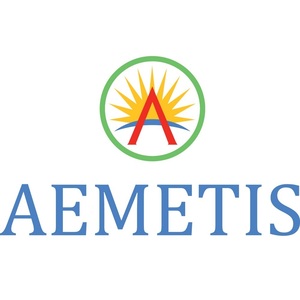Aemetis India subsidiary on schedule with biodiesel shipments

June 15, 2023
BY Aemetis Inc.
Aemetis Inc., a renewable natural gas and renewable fuels company focused on negative carbon intensity products, announced today that its Universal Biofuels subsidiary in India is on schedule with biodiesel shipments to the three government-owned oil marketing company (OMC) customers with $27 million (80 percent) of the $34 million of second quarter contracted deliveries already completed. The combined orders for Q2 2023 comprised about 8 million gallons of biodiesel and future volumes are expected to be increased as OMC procurement processes continue to improve.
“Similar to our renewable fuels projects in the United States, Aemetis is committed to improving the environment and health in India by reducing the country’s dependence on imported, high cost, highly polluting petroleum diesel fuel,” stated Eric McAfee, chairman and CEO of Aemetis Inc. “Our Universal Biofuels plant is one of only a few biodiesel producers in India that has passed each of the many independent product quality tests required by the late 2022 and the Q2 2023 OMC tenders. We are scaling up our operational capacity to meet quarterly OMC tender offers that are significantly larger than our current capacity to produce biodiesel.”
As the largest producer of biodiesel in India, improvements in the OMC procurement process have enabled the Universal Biofuels 50 million gallon per year capacity plant to increase production. Expanded biodiesel production supports the Indian government’s initial goal of a 1 percent biodiesel blend in the amount of about 250 million gallons per year, on the way to fulfilling the 5 percent blend (1.25 billion gallons per year) set forth in the 2022 National Biofuels Policy.
Advertisement
Advertisement
India consumes about 25 billion gallons per year of diesel, but India does not have a meaningful amount of domestic oil production and is dependent on imported crude oil to supply its petroleum refineries. The adoption of a 5 percent biodiesel blend target by the India government under the 2022 National Biofuels Policy is expected to reduce the amount of petroleum imported into India, reduce the export of dollars exported to purchase crude oil, strengthen domestic agricultural producers and processors, and significantly improve air quality while reducing carbon pollution.
Petroleum diesel emissions are a significant contributor to poor air quality and health issues in India. According to the Public Health Foundation of India, air pollution cause causes more than $36 billion of economic losses each year and about one of every six deaths in India are caused by air pollution.
Advertisement
Advertisement
Biodiesel used in heavy transportation reduces particulate emissions by more than 90 percent compared to petroleum diesel and creates domestic demand in India for agricultural feedstocks and waste byproducts to supply renewable fuel production facilities. Biodiesel produced from waste feedstocks reduces carbon pollution by 50 percent to 80 percent compared to petroleum diesel, directly reducing the emission of greenhouse gases that contribute to climate change.
Related Stories
The U.S. Energy Information Administration maintained its forecast for 2025 and 2026 biodiesel, renewable diesel and sustainable aviation fuel (SAF) production in its latest Short-Term Energy Outlook, released July 8.
XCF Global Inc. on July 10 shared its strategic plan to invest close to $1 billion in developing a network of SAF production facilities, expanding its U.S. footprint, and advancing its international growth strategy.
U.S. fuel ethanol capacity fell slightly in April, while biodiesel and renewable diesel capacity held steady, according to data released by the U.S. EIA on June 30. Feedstock consumption was down when compared to the previous month.
XCF Global Inc. on July 8 provided a production update on its flagship New Rise Reno facility, underscoring that the plant has successfully produced SAF, renewable diesel, and renewable naphtha during its initial ramp-up.
The USDA’s Risk Management Agency is implementing multiple changes to the Camelina pilot insurance program for the 2026 and succeeding crop years. The changes will expand coverage options and provide greater flexibility for producers.
Upcoming Events










